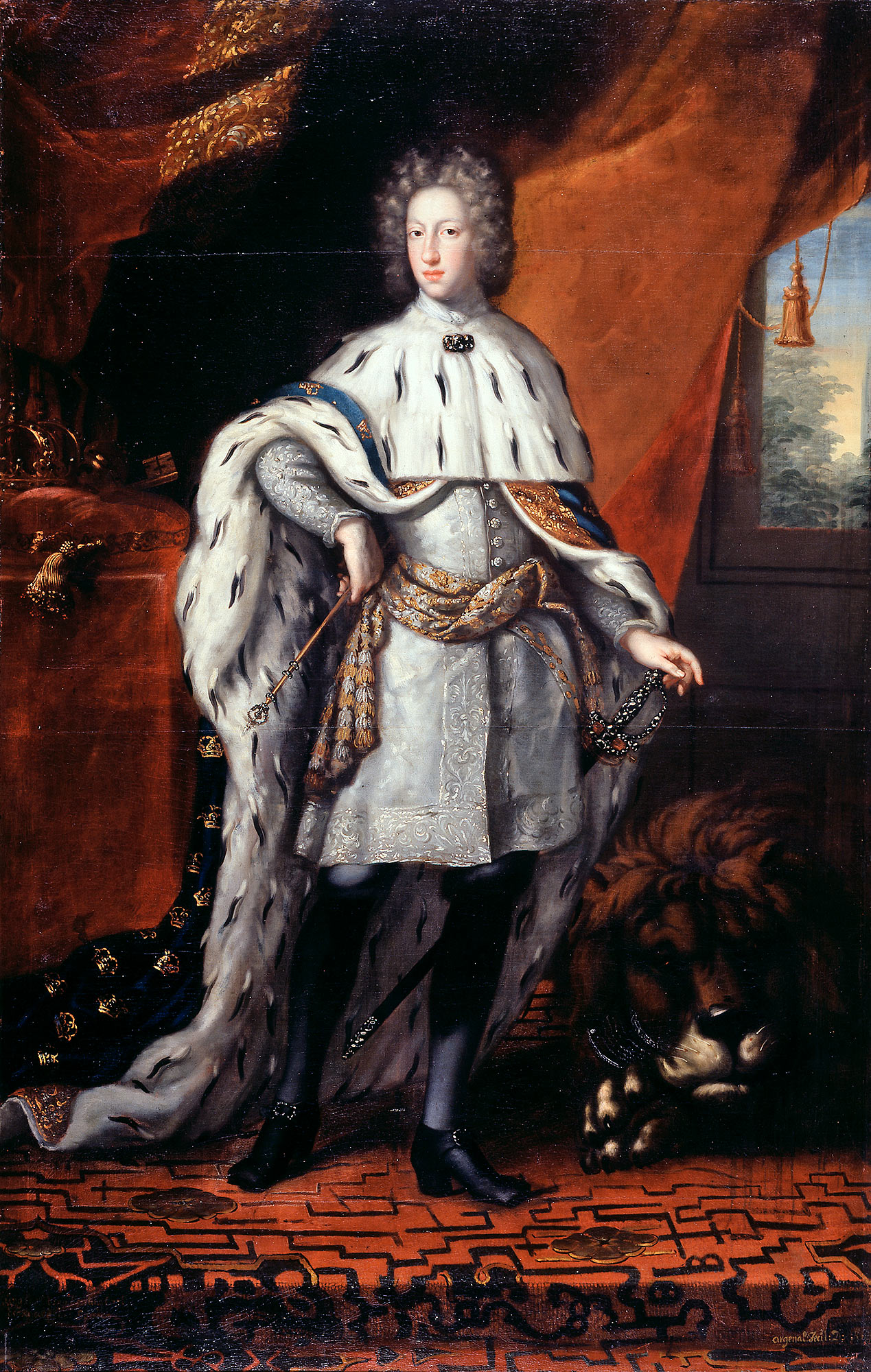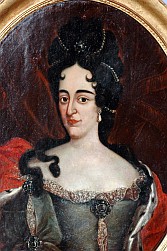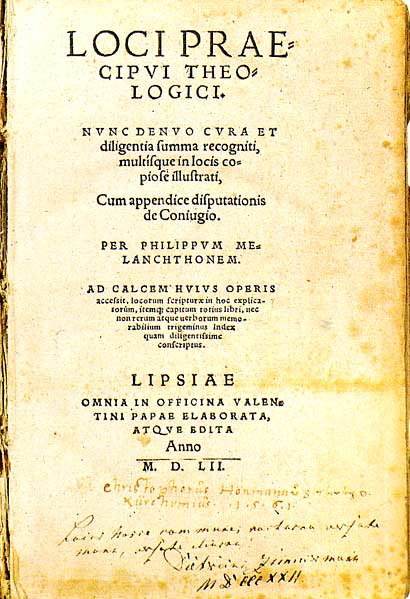|
Johann Friedrich Mayer (theologian)
Johann Friedrich Mayer (6 December 1650 – 30 March 1712) was a German Lutheran theologian and professor of theology at Wittenberg University. He was an important champion of Lutheran orthodoxy and General Superintendent of Swedish Pomerania. Life Johann Friedrich Mayer was born in Leipzig on 6 December 1650 as the son of Johann Ulrich Mayer and his wife Ursula Sophia Braun. He attended the University of Leipzig and was awarded a bachelor's degree on 21 April 1666. A master's degree in liberal arts from the Faculty of Philosophy Faculty followed on 30 January 1668. He then attended the University of Strasbourg, where he applied himself to theological studies under Balthasar Friedrich Salzmann and until 1670. On 13 February 1671, he joined the Theological Faculty of Leipzig University. On 29 January 1672, he was made Saturday preacher (assistant pastor) in Leipzig, and later that year he was appointed superintendent in Leisnig. On 29 May 1673 he obtained his licentiate an ... [...More Info...] [...Related Items...] OR: [Wikipedia] [Google] [Baidu] |
Lutheran
Lutheranism is one of the largest branches of Protestantism, identifying primarily with the theology of Martin Luther, the 16th-century German monk and reformer whose efforts to reform the theology and practice of the Catholic Church launched the Protestant Reformation. The reaction of the government and church authorities to the international spread of his writings, beginning with the '' Ninety-five Theses'', divided Western Christianity. During the Reformation, Lutheranism became the state religion of numerous states of northern Europe, especially in northern Germany, Scandinavia and the then- Livonian Order. Lutheran clergy became civil servants and the Lutheran churches became part of the state. The split between the Lutherans and the Roman Catholics was made public and clear with the 1521 Edict of Worms: the edicts of the Diet condemned Luther and officially banned citizens of the Holy Roman Empire from defending or propagating his ideas, subjecting advocates of Lutheranis ... [...More Info...] [...Related Items...] OR: [Wikipedia] [Google] [Baidu] |
Johannes Andreas Quenstedt
Johannes Andreas Quenstedt (13 August 1617 – 22 May 1688) was a German Lutheran dogmatician in the Lutheran scholastic tradition. Quenstedt was born at Quedlinburg, a nephew of Johann Gerhard. He was educated at the University of Helmstedt, 1637–43, and at the University of Wittenberg, 1644, where afterwards he lectured on geography; was adjunct professor in the philosophical faculty, 1646–49; ordinary professor of logic and metaphysics and associate professor of theology, 1649–60; and ordinary professor of theology, 1660–88 until his death. Quenstedt represents the old orthodox reaction after the period of reconstruction had set in. The fruit of his thirty years of work in the university lectureship was published in the ''Theologia didactico-polemica sive systema theologicum'' (Wittenberg, 1685; Leipzig, 1715), a work according to the strictest standard of Lutheran orthodoxy, based upon the ''Theologia, positiva acroamatica'' of his teacher, Johann Friedrich König, a ... [...More Info...] [...Related Items...] OR: [Wikipedia] [Google] [Baidu] |
Charles XII Of Sweden
Charles XII, sometimes Carl XII ( sv, Karl XII) or Carolus Rex (17 June 1682 – 30 November 1718 O.S.), was King of Sweden (including current Finland) from 1697 to 1718. He belonged to the House of Palatinate-Zweibrücken, a branch line of the House of Wittelsbach. Charles was the only surviving son of Charles XI and Ulrika Eleonora the Elder. He assumed power, after a seven-month caretaker government, at the age of fifteen. In 1700, a triple alliance of Denmark–Norway, Saxony– Poland–Lithuania and Russia launched a threefold attack on the Swedish protectorate of Holstein-Gottorp and provinces of Livonia and Ingria, aiming to draw advantage as the Swedish Empire was unaligned and ruled by a young and inexperienced king, thus initiating the Great Northern War. Leading the Swedish army against the alliance, Charles won multiple victories despite being usually significantly outnumbered. A major victory over a Russian army some three times the size in 1700, at the Ba ... [...More Info...] [...Related Items...] OR: [Wikipedia] [Google] [Baidu] |
Anna Dorothea, Abbess Of Quedlinburg
Duchess Anna Dorothea of Saxe-Weimar (12 November 1657 - 24 June 1704) reigned as Princess-Abbess of Quedlinburg from 1684 until her death. Born in Weimar, Duchess Anna Dorothea was the daughter of John Ernest II, Duke of Saxe-Weimar, and Princess Christine Elisabeth of Schleswig-Holstein-Sonderburg. Her father decided she should pursue an ecclesiastical career when she was still a child. From 1681 until 1684, Anna Dorothea was provost of the Quedlinburg monasteries. Upon the death of Princess-Abbess Anna Sophia II, Anna Dorothea was chosen to succeed her, though not without difficulties that required the intervention of the abbey-principality's guardian and fellow Wettin, John George III, Elector of Saxony. The Elector consented to her election on 4 September 1684 and Holy Roman Emperor Leopold I confirmed it on 29 January 1685. In 1698, Frederick Augustus I, who had succeeded to the Electorate of Saxony in 1694 and had been elected King of Poland Poland was ruled at vari ... [...More Info...] [...Related Items...] OR: [Wikipedia] [Google] [Baidu] |
Charles XI Of Sweden
Charles XI or Carl ( sv, Karl XI; ) was King of Sweden from 1660 until his death, in a period of Swedish history known as the Swedish Empire (1611–1721). He was the only son of King Charles X Gustav of Sweden and Hedwig Eleonora of Holstein-Gottorp. His father died when he was four years old, so Charles was educated by his governors until his coronation at the age of seventeen. Soon afterward, he was forced out on military expeditions to secure the recently acquired dominions from Danish troops in the Scanian War. Having successfully fought off the Danes, he returned to Stockholm and engaged in correcting the country's neglected political, financial, and economic situation. He managed to sustain peace during the remaining 20 years of his reign. Changes in finance, commerce, national maritime and land armaments, judicial procedure, church government, and education emerged during this period. Charles XI was succeeded by his only son Charles XII, who made use of the well-tra ... [...More Info...] [...Related Items...] OR: [Wikipedia] [Google] [Baidu] |
Duchy Of Holstein
The Duchy of Holstein (german: Herzogtum Holstein, da, Hertugdømmet Holsten) was the northernmost state of the Holy Roman Empire, located in the present German state of Schleswig-Holstein. It originated when King Christian I of Denmark had his County of Holstein-Rendsburg elevated to a duchy by Emperor Frederick III in 1474. Members of the Danish House of Oldenburg ruled Holstein – jointly with the Duchy of Schleswig – for its entire existence. From 1490 to 1523 and again from 1544 to 1773 the Duchy was partitioned between various Oldenburg branches, most notably the dukes of Holstein-Glückstadt (identical with the Kings of Denmark) and Holstein-Gottorp. The Duchy ceased to exist when the Kingdom of Prussia annexed it in 1866 after the Austro-Prussian War. History The northern border of Holstein along the Eider River had already formed the northern border of the Carolingian Empire, after Emperor Charlemagne upon the Saxon Wars reached an agreement with King Hemming of ... [...More Info...] [...Related Items...] OR: [Wikipedia] [Google] [Baidu] |
University Of Kiel
Kiel University, officially the Christian-Albrecht University of Kiel, (german: Christian-Albrechts-Universität zu Kiel, abbreviated CAU, known informally as Christiana Albertina) is a university in the city of Kiel, Germany. It was founded in 1665 as the ''Academia Holsatorum Chiloniensis'' by Christian Albert, Duke of Holstein-Gottorp and has approximately 27,000 students today. Kiel University is the largest, oldest, and most prestigious in the state of Schleswig-Holstein. Until 1864/66 it was not only the northernmost university in Germany but at the same time the 2nd largest university of Denmark. Faculty, alumni, and researchers of the Kiel University have won 12 Nobel Prizes. Kiel University has been a member of the German Universities Excellence Initiative since 2006. The Cluster of Excellence The Future Ocean, which was established in cooperation with the GEOMAR Helmholtz Centre for Ocean Research Kiel in 2006, is internationally recognized. The second Cluster of Excel ... [...More Info...] [...Related Items...] OR: [Wikipedia] [Google] [Baidu] |
Abraham Hinckelmann
Abraham Hinckelmann (2 May 1652, Döbeln, Electorate of Saxony – 11 February 1695), a Germany, German Protestant theologian, was an Islamologist who was one of the first to print a complete Qur'an in Hamburg. Later, a cleric named Ludovico Marracci from the "Society of the Monks of the Divine Path" published a better version. External links *https://web.archive.org/web/20080112001936/http://www.msgr.ca/msgr-2/Koran%20-%20Nativity%20-%2002.htm *https://web.archive.org/web/20070929155310/http://www.quran.org.uk/articles/ieb_quran_in_the_west.htm * Achim Rohde: ''A Hamburg Koran and the Downgrading of the Hebraic in the Christian Theology of the 17th Century]''. In: Key Documents of German-Jewish History, October 21, 2018. 1652 births 1695 deaths People from Döbeln 17th-century German Protestant theologians People from the Electorate of Saxony Martin Luther University of Halle-Wittenberg alumni German scholars German male non-fiction writers 17th-century German writers 17 ... [...More Info...] [...Related Items...] OR: [Wikipedia] [Google] [Baidu] |
Pietism
Pietism (), also known as Pietistic Lutheranism, is a movement within Lutheranism that combines its emphasis on biblical doctrine with an emphasis on individual piety and living a holy Christian life, including a social concern for the needy and disadvantaged. It is also related to its non-Lutheran (but largely Lutheran-descended) Radical Pietism offshoot that either diversified or spread into various denominations or traditions, and has also had a contributing influence over the interdenominational Evangelical Christianity movement. Although the movement is aligned exclusively within Lutheranism, it had a tremendous impact on Protestantism worldwide, particularly in North America and Europe. Pietism originated in modern Germany in the late 17th century with the work of Philipp Spener, a Lutheran theologian whose emphasis on personal transformation through spiritual rebirth and renewal, individual devotion, and piety laid the foundations for the movement. Although Spener did not ... [...More Info...] [...Related Items...] OR: [Wikipedia] [Google] [Baidu] |
Conventicles
A conventicle originally signified no more than an assembly, and was frequently used by ancient writers for a church. At a semantic level ''conventicle'' is only a good Latinized synonym of the Greek word church, and points to Jesus' promise in Matthew 18:20, "Where two or three are ''met together'' in my name." It came to be applied specifically to meetings of religious associations, particularly private and secret gatherings for worship. Later it became a term of deprecation or reproach, implying that those of whom it was used were in opposition to the ruling ecclesiastical authorities; for example, it was applied to a cabal of mutinous monks in a convent or monastery. Ultimately it came to mean religious meetings of dissenters from an established church, held in places that were not recognized as specially intended for public worship or for the exercise of religious functions. It implied that a condition of affairs obtained in which the State made a distinction between a form or ... [...More Info...] [...Related Items...] OR: [Wikipedia] [Google] [Baidu] |
Pietist
Pietism (), also known as Pietistic Lutheranism, is a movement within Lutheranism that combines its emphasis on biblical doctrine with an emphasis on individual piety and living a holy Christianity, Christian life, including a social concern for the needy and disadvantaged. It is also related to its non-Lutheran (but largely Lutheran-descended) Radical Pietism offshoot that either diversified or spread into various denominations or traditions, and has also had a contributing influence over the Interdenominationalism, interdenominational Evangelicalism, Evangelical Christianity movement. Although the movement is aligned exclusively within Lutheranism, it had a tremendous impact on Protestantism worldwide, particularly in North America and Europe. Pietism originated in modern Germany in the late 17th century with the work of Philipp Spener, a Lutheran theologian whose emphasis on personal transformation through spiritual rebirth and renewal, individual devotion, and piety laid the ... [...More Info...] [...Related Items...] OR: [Wikipedia] [Google] [Baidu] |
Lutheran Orthodoxy
Lutheran orthodoxy was an era in the history of Lutheranism, which began in 1580 from the writing of the ''Book of Concord'' and ended at the Age of Enlightenment. Lutheran orthodoxy was paralleled by similar eras in Calvinism and tridentine Roman Catholicism after the Counter-Reformation. Lutheran scholasticism was a theological method that gradually developed during the era of Lutheran orthodoxy. Theologians used the neo-Aristotelian form of presentation, already popular in academia, in their writings and lectures. They defined the Lutheran faith and defended it against the polemics of opposing parties. History Martin Luther died in 1546, and Philipp Melanchthon in 1560. After the death of Luther came the period of the Schmalkaldic War and disputes among Crypto-Calvinists, Philippists, Sacramentarians, Ubiquitarians, and Gnesio-Lutherans. Early orthodoxy: 1580–1600 The ''Book of Concord'' gave inner unity to Lutheranism, which had many controversies, mostly between Gnesi ... [...More Info...] [...Related Items...] OR: [Wikipedia] [Google] [Baidu] |
.jpg)


_en2.png)



